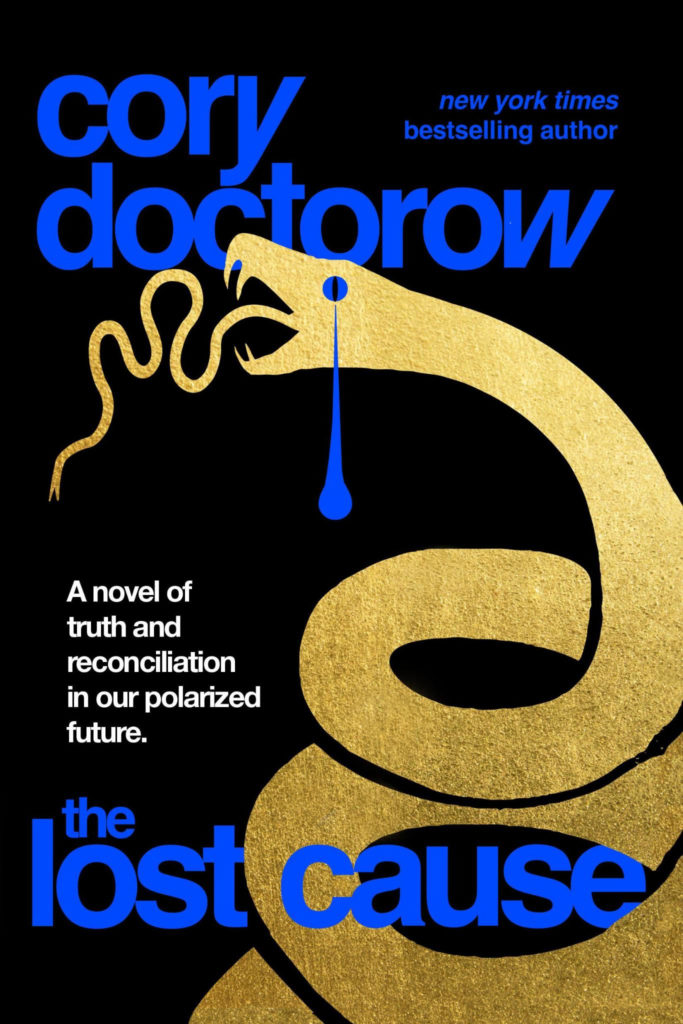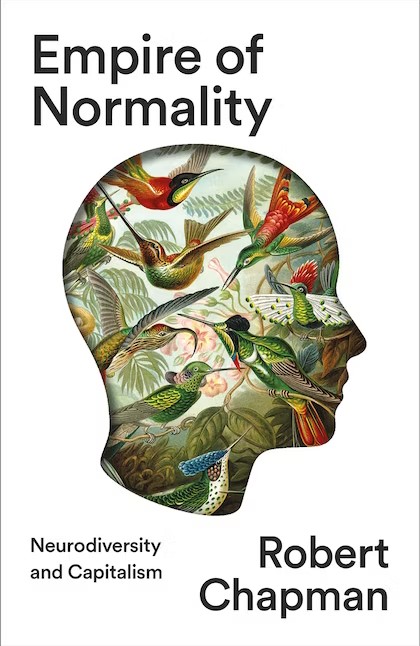- I turned twenty-three this week, so here’s a collection of topics that have nothing to do with that:
- Frustrations over that bloody video, again;
- Books on my radar;
- Working on the blog on-the-go with a new cloud solution (that’s not actually in the cloud)
Stop saying that, right? Just you go home. What is this? Don’t… I’m not gonna get fucking, a present bomb in the face?
https://www.youtube.com/watch?v=QzSxsrB8Xdc
I was born a few hours too late to watch Judith Keppel win Who Wants to Be a Millionaire?. I’ve been trying to catch up ever since. A couple days ago, I turned twenty-three, the last prime number before everyone starts wondering if it’s just us, or if we’re just losing it.
It’s also the age of the friends I would go on to meet when I started Uni. I don’t see them often, but I think about them a lot. I blamed myself for not keeping in touch in my final year, and to some extent, I should’ve. In the interim between graduation and entering employment, people tend to drift apart as their lives get busier.
My last year of Uni is something I ought to be happy about. But it’s that same kind of ought when you think it’s a no-brainer taking a job that pays a lot, only to realise in the thick of it that, not only is your job ultimately unnecessary, you’ve agreed to revoke the power to be the direct cause of something in the world, instead letting someone else decide your time, on their clock, from nine to five. You’ve got a good innings, you should be happy, yet there’s still some dissatisfaction. I went out and did my Honours project, and it went out with a bang in the best possible way. I got a job. Everything that matters went right. Yet there’s still some dissatisfaction.
Everything that mattered to other people went right that year. Folks, cards on the table here, I am a man who seldom rests in pursuit of being at ease with his ‘disorganisation.’ I am autistic, ADHD, and dyspraxic, and although I would rebuke on any day with a y in it that I NEED to take medicine to ‘function’ as ‘a normal person,’1 I’m not allowed to accept being disorganised. If you step into my room, it is a disorganised mess, because everything in that room is an extension of myself.
I do not like to be instrumentally motivated, yet what goes on around me coerces me to be so, lest I become a fuckup. I constantly think back on a passage by the late David Graeber, an anthropologist and anarchist, in his groundbreaking book, Bullshit Jobs:
Bullshit Jobs, Chapter 3: Why Do Those in Bullshit Jobs Regularly Report Themselves Unhappy?[This is in part because] most people who have ever existed have assumed that normal human patterns take the form of periodic intense bursts of energy, followed by relaxation, followed by slowly picking up again towards another intense bout. This is what farming is like, for instance…. But even daily tasks, or projects such as building a house or preparing for a feast, tend to take roughly this form.
In other words, the traditional student’s pattern of lackadaisical study leading up to intense cramming before exams and then slacking off again… is typical of how human beings have always tended to go about necessary tasks if no-one forces them to act otherwise. Some students may engage in cartoonishly exaggerated versions of this pattern. But good students figure out how to get the pace roughly right.
I also think a lot about why you can’t say ‘orange’ to your boss like you can say ‘orange’ to your partner. I mean that in the most psychoanalytical way.
Graeber later goes on to note that of the people who wrote to him describing how they rebelled against their bullshit job, many of them took up an activity that did not further their professional career, i.e. people working in STEM would spend time in the arts and humanities, and vice versa. As the humanities kid who fell for the ‘humanities degrees are useless – get into STEM’ meme, I sympathise with that.
The achievements of last year are forever tinged by a feverish neurosis over being organised like our disciplined working world of clock-oriented time expects us to be. The video I made for my Honours project? Kicked six shades of shit out of the raw deal I got at Uni due to COVID. It was nonetheless made by someone who saw himself as ill, and, purging himself of unproductive sin, went cold turkey on all forms of communication, and did what other people told him he should do. Even worse, I told no-one where I was going, or how long I’d be. I’d forgotten in my fever that most of my friends were rather busy people already, and thought they wouldn’t notice, or care. One of those friends I mentioned in a previous post. We’ve only met so many times in person – he lives on the other side of the country, works retail, and has to ride Scotrail fares (fuck Scotrail, h/t to the Smash Scotland community) – but he is salt of the earth.

I think I had bottled up all my frustration towards studying in a pandemic, and it came to a point where it all spilled over into a frenetic surge of energy. I say I think because it’s not the first time I’ve been through this. The rebound and recovery from this surge has been longer than any I’ve had in the past. I mark this with a particular video that has given me a lot of trouble in making. Two years ago, in November 2021, I posted some teasers for YouTube projects on my Twitter:
https://pikuoriparadise/status/1462908901586841600
This is an alt account separate to another personal account I used that has since been deactivated. I’ve always intended Pikuoriparadise to be a gimmick account, which is why I haven’t used it to syndicate my Brologue posts. Anyways, my vision was to develop some of these projects alongside my Honours – yknow, the one that takes six months of uninterrupted hard graft. That was the theory. The praxis, it turned out, was to throw all that to one side until graduation, then spend most hours God sent me working on the Honours, then looking for a job, then believing that said job would somehow give me more time to work on it, and finally, in the evenings or at weekends, work on the video for brief intensive bursts every couple of weeks or so.
I’m still trying to decipher how a job gives me more time to work on videos. It’s not even a demanding video to make. Between work and family, I have very little time to make progress. The time I could be spending working on the video is time spent recovering from the time spent at work. Between me and my capacity to put out work that’s important to me, there’s something that I lack the concepts and language to grasp. I keep trying, but my brain slips through like sand through fingers.
It’s not capitalism. It’s so, so ridiculously easy to just go, “Ah, yet another day in this neoliberal capitalist hellscape, time to wake up and smell the burnout!” But that’s not to say that capitalism’s not involved. That’s like saying major oil companies aren’t involved in F1 when their logos are plastered all over the cars.
Either way, it’s two years later, and I’m still working on that video. I made a promise to my viewers that I’d finish it, and I’m going to do my best to get it done before the year is out.
That Wot I am Reading
I’d love to tell you I’m reading two books. I’d love to tell myself that, I really, really, REALLY would. It’s more like fifteen. I may have a further backlog of fifty books I want to get through. The trouble is that many of the books I’ve read this year have contained lots of little interesting bits, like golden flecks on the bottom of a roasting tray, and they remind me that they’re part of something bigger and more important. I don’t want to miss a minute. I read for pleasure as much as I do for research. A punctual line of prose of dialogue from fiction may make a great primer, or polishes all your thoughts as a finishing coat.
If you can’t trust someone who says they’ve got enough shelf space, you can’t begin to trust someone who has only the one book on the go at a time. But if I had to keep it to just two…
The Lost Cause, by Cory Doctorow

I’ve linked to Doctorow’s Pluralistic blog a lot. He has single-handedly changed the way I view the technology that was integral to my growing up, what happens when it goes wrong, and what we can do to rebuild it. I used to be seriously nutty about ads and trackers and how they were one of surveillance capitalism’s many plagues. Doctorow says we shouldn’t give adtech companies so much credit. To portray adtech as some pervasive, intangible and omniscient force, divining our daughters’ pregnancies before their fathers based on spending habits, teeters on the edge of reality. It peers into the abyss of two mirrors placed side by side, emerging at the other side into the world of stories. In the end, adtech companies are just garden-variety businesses doing what they do best, and they really haven’t cracked the code to mind control.
https://pluralistic.net/2023/11/03/subprime-attention-rent-crisis/
End users and business customers alike use the same platforms as intermediaries, and likewise face abuse from these platforms, who have their own invested interests. If you allocate value to your end users and business customers, the easiest way to win it all back for investors is to play a two-sided market, and take everyone for fiddles. Discussion of this phenomenon, what he calls ‘enshittification,’ exploded after this blog post back in January:
Here is how platforms die: first, they are good to their users; then they abuse their users to make things better for their business customers; finally, they abuse those business customers to claw back all the value for themselves. Then, they die.
https://pluralistic.net/2023/01/21/potemkin-ai/
I want this engraved in something. Or to be put on stickers to slap on bus shelters and lampposts. It’s a bit wordy, but that just means more sticker.
I bought his previous non-fiction book, The Internet Con: How to Seize the Means of Computation, and inhaled it. The Lost Cause is my first foray into his repertoire of sci-fi novels. From the first few chapters, I think it’s definitely a fantasy for Mum, save the reflective anti-CCTV suits:
https://brologue.net/2023/11/05/fantasy-for-mums/
It’s set in California roughly thirty years in the future. Somehow, guns are a relic of the past, handed in at county fairs, and dismantled beyond recognition like a balloon animal. Gun culture in the States has done a complete 180 – some folks won’t be caught dead bringing them up.
How’s the climate holding up? It isn’t. Oh, sure, the power grid’s gone solar. But leaving your blinds open during the day can turn your house into a deathtrap. Biblical rainstorms and mudslides are as common as Monday and Thursday night football. Millions of people across the States take up climate relief volunteering. Coastal residents are made refugees in their own country. Some of them organise caravans and move inland, to the city of Burbank, where plans are underway to tear up historical residential areas and build new high-rise flats to accommodate them.
Do they still use smartphones? Yes – many of the Big Tech platforms we used to know have gone plural (presumably broken up by antitrust), federated in local instances, but that hasn’t damped the amplifying effect that social media can have on a story.
You would be mistaken, however, to think that a future shaped to have a more robust stance to antitrust and climate response wouldn’t leave old ghosts. The Maga Club still walk the streets of Burbank. Their politeness in public is as tricky as ever, and so is their spikiness in local politics. There are still rumblings that a civil war is coming, and to that end, the Maga Club wants their guns back.
The growing sentiment of civil unrest is made all the more salient through our narrator and protagonist, Brooks Palazzo, who finds a hidden cache of guns, gold and steel in his late grandfather’s house. He’s one of those little Green New Deal radical left antifa queers who’s been spending taxpayer’s money to fight a little rain, and moving all the drug-addled rapists into town. A proper Cnut if there ever was one. The only reason he’s not dead is because he has his grandfather’s blood, and it shows that the Maga Club prizes legacy over anything else. All that tree-hugging bullshit, forgiven in an instant, if he just hands over the guns…
I haven’t finished even the first quarter of the book, but I don’t think this is a novel where white, middle-class, red-capped men are espoused as a cardinal evil, and that we should oppose everything they say ever. This isn’t a novel where those people say, “The sky is blue,” and our lefty heroes rush to take up the defense with, “Well, actually…” No, I think this will be a novel where we see the shortcomings of being diametrically opposed to anything they care about. As Doctorow noted about the 15-minute city protestors earlier this year, they rant and rave about the right things more often than not – but perhaps for more fantastical reasons than even reality can’t provide:
The anti-15-minute-city conspiracy theory holds that the 15-minute city is a precursor to a new generation of “climate lockdowns,” modeled on the COVID lockdowns.
“Climate lockdowns” are a product of a conspiracist’s fevered imagination, but here’s the thing: when the swivel-eyed loons claim that the COVID lockdowns were a pretense to control everyday people while rich people swanned around having a lovely time, they’re not entirely wrong.
The idea that rich, powerful people are happy to enact extremely invasive, restrictive rules that they are not in any way bound by isn’t wrong. It’s actually very, very right.
When the swivel-eyed loons claim that multinational corporations use crises like COVID or the climate emergency to screw them over, they’re not wrong. They’re very, very right.
The COVID crisis is very, very real.
But that doesn’t mean that it’s not also a pretext.
The lockdown allowed our employers to convert our homes into rent-free satellite offices, transforming “work at home” to “live at work,” in a dizzying eyeblink. Our computers and phones – often devices that we ourselves were expected to pay for – were enlisted to the corporate IT system and then enshittified with bossware that spies on our keystrokes, plunders our filesystems, monitors our network activity, and for some workers, watches and listens to them constantly through their devices’ cameras and microphones.
https://locusmag.com/2023/05/commentary-cory-doctorow-the-swivel-eyed-loons-have-a-point/
The red baseball-cap wearing folk are ordinary folk like you and me. If they should rant and rave about Big Pharma’s vaccines causing this and that, or Bill Gates’ plandemic, or whatever batshit idea the world’s richest have cooked up at the WEF this year, changing your stance on a dime is quite extraordinary. If it wasn’t, we’d all have been in bed with Big Oil’s greenwashing efforts years ago:
https://pluralistic.net/2021/12/18/schizmogenesis/
I look forward to reading how Brooks handles the mounting threats against himself and his house guests. I hope there’s peace, but it could end just as well as any of the old stories – in blood.
Empire of Normality, by Dr. Robert Chapman

If you want to critique capitalism, you have to start with the men who came up with critiquing capitalism. Likewise, to assess the progress of social causes in a capital-dominated society requires you to do the same. The term ‘neurodiversity’ can be traced back to a 1998 thesis by sociologist Judy Singer. She argued that it takes all kinds of minds to run society, and therefore, it’s imperative that the diversity of human cognition be preserved and protected. She originally meant this term to refer to autistic people only, but as the web began to develop, and more and more people came online to share their experiences, neurodiversity came to represent a movement that seeks rights for those who deviate from the neurotypical ideal, no matter what their diagnosis.
In the UK, at least, we’ve had some little successes – sensory rooms and quiet areas, to ‘autism-friendly’ shopping hours with reduced lighting – but the way that neurodiversity has been treated in society has never sat right with me. It’s a little like when a brand changes its icons for Pride month, or perhaps offer a massive sale, or, as most fast food chains do, run a limited-time item. They’re only doing it for the money, and it’s nothing short of spectacle. For one month out of the year, they can increase their consumer base and look as though they’re the champions of social justice.
Neurodiversity has been co-opted as yet another trendy social cause that can be supported through free markets and private charity. Matt Hancock seems to think so – he recently launched his non-profit charity, the ‘Accessible Learning Foundation,’ to ‘push for wider understanding of neurodiversity (including dyslexia2)’:
https://www.matt-hancock.com/news/launching-accessible-learning-foundation-alf
Of course, this is the same Matt Hancock who asked for a bit of forgiveness by going on I’m a Celeb and eating exotic offal for a cool £320,000 paycheck – it’s the same Matt Hancock whose government pursued austerity policies directly harmful to neurodivergent folks.
Here’s a ‘wider understanding of neurodiversity’ for you. Chapman uses Marxist theory to offer a history of health and the rise of capitalism as it relates to neurodiversity, starting with Rene Descartes’ contributions to medical science, and his shifting world, from feudalism, to merchant capitalism, and finally industrial capitalism.
This book, from what I’ve read of it so far, may offer answers to things that have always frustrated me. Why do 98% of all conversations about neurodiversity collapse into medical talk? Why does promoting neurodiversity in the workplace feel like I’m still ticking boxes? Is it a me thing, or is there some social need not being met that causes us all to suffer? If it answers these, and much more, you’ll definitely hear about this book from me again.
Syncthing and the Amazing Mirror
I like to write up my blog posts in my Zettelkasten, because it allows me to draw on and integrate my collection of literature notes as I’m writing:
https://brologue.net/2023/11/04/zettelkasten-an-antidote-for-boring-notes/
It’s great, but as you may be aware, Brologue HQ has a Boredom Officer, and he does not tolerate computer use between the hours of 7pm-11pm. Since Bo was a baby, he has bargained with my time in the evenings by choosing violence. Sometimes, he’ll actively protest by stealing my chair:

Most of the time, though, it’s slipping behind my monitors to chew wires. He’s just trying to look after me, but I’ve lost a lot of good threads of thought trying to get him to not chew wires. God knows how much editing time I’ve lost. However, for the former, I’ve found a solution in Syncthing, a P2P file sync application:
Here’s the quick rundown for Dads: Syncthing acts as a secure intermediary for sharing and syncing files on your home network. Basically, think airdropping on iOS, but any future changes to the file/folder are reflected on all devices authorised to access it. Connecting to other devices is as simple as installing the app, as all devices on your local network with the app installed are discoverable. When sharing, you decide who gets to sync and who doesn’t – just make sure you’ve got the right User ID first.
I’ve set mine up to sync the Zettelkasten to my phone, and it’s amazing. If Bo says it’s time to stop posting, I’m able to go off, play with him, go downstairs, play with him, and get back to writing up notes without returning to my desktop.
The Obsidian experience on Android leaves much to be desired, but it also doesn’t lock your vault in any way that you’re forced to buy Obsidian Sync to achieve the same functionality. After all, your vault is only just a collection of Markdown files. I love a solution that’s not only really easy to install on any device, but also just works. For once, I didn’t have to go through compiler hell trying to build it from source. It’s available on every device in our house, save Apple devices – but with the DMA coming into force next year, that might not be the case for much longer:
Cloud services will always have the advantages of taking all the storage space you need, and pushing it somewhere else – but if you’ve got all the storage space you need at home, give Syncthing a try.
- I know this can be taken to mean a lot of things, so I will try to disambiguate. I take medicine so I have the capacity available to take on most shite the day throws at me. If I didn’t have access to that medicine, you couldn’t get me out of bed, and I physically could not work. Having access to that medicine, and being able to take it, are only so liberating: the language and attitudes surrounding neurological conditions have only just shifted from the clinical pathology paradigm, to the more socially-oriented model that the neurodiversity movement offers. A change of phrasing may offer opportunities to view social problems from a different perspective, but there is nothing to secure language from those in power who are free to co-opt, throw out the bits they don’t like, and prop up the rest in exclamation that change is a-coming. Is ADHD medicine a countermeasure to our disabling society, or something to shut us up and make us function “normally,” as if our bodies were machines? If not “normal”, then at an internalised yet nebulous baseline that is considered “regular” in polite society? ↩︎
- Hancock is dyslexic himself. How do we know if it held him back from reaching one of the highest offices in the land? He’ll tell us. ↩︎
